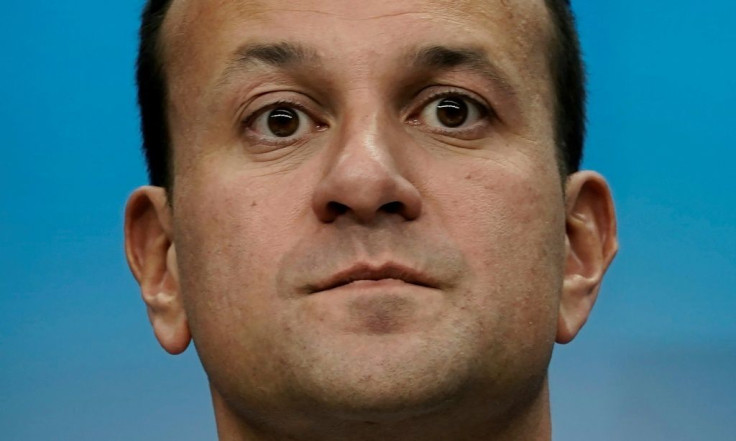Irish Government Stumbles As Post-Brexit Election Looms

As political chaos reigned across the sea in Britain, Ireland's two main parties have been working together to limit the damage of Brexit -- but not for much longer.
The alliance is cracking and both are now preparing for an election early next year, with Prime Minister Leo Varadkar's ruling Fine Gael party in a ramshackle state.
Beset by scandal, the centre-right party may even be forced from power before its pact with the main opposition Fianna Fail expires.
But Varadkar could win a boost if Britain, which holds its own election on Thursday, can break the political deadlock over leaving the European Union.
As Britain's closest neighbour, EU member Ireland stands most to lose from a disorderly divorce.
Fianna Fail initially agreed to prop up Varadkar's Fine Gael-led minority government in 2016, and the two sides pledged to extend the alliance through 2019 as Brexit headwinds grew worse.
Britain's EU exit risks huge economic disruption across the Irish Sea, particularly when it appeared earlier this year that it might leave the bloc with no new arrangements in place.
But if Prime Minister Boris Johnson is re-elected this week with a parliamentary majority, he promises to get Britain out of the bloc on January 31 with a deal.
The end to this period of prolonged uncertainty could give Varadkar a popularity boost, as the leader who avoided a no-deal divorce.
An October Irish Times/Ipsos MRBI found Varadkar had a 51 percent approval rating after key Brexit talks with Johnson, up 15 points in five months.
After nine years in power, Fine Gael highlights its stewardship of the economy following a ruinous recession, as well as a new era of momentous social change.
As a mixed-race, gay and young prime minister, Varadkar himself is the embodiment of a leader keyed into the progressive attitude of a liberalising Ireland.
He took the Roman Catholic country known for deep religious conservatism into the landmark 2018 referendum that ended the ban on abortion.
But the party has been hit by a series of scandals and its poll ratings are suffering.
Mid-November results from a Business Post/Red C poll indicated support for Fine Gael at 30 percent, with a strong lead over Fianna Fail on 24 percent.
But Fine Gael was down two points as Fianna Fail remains constant.
Last month, Fine Gael lawmaker Maria Bailey was deselected from the party after a row over her decision to sue a hotel for a personal injuries claim.
Bailey fell from an indoor swing whilst holding a bottle of beer in 2015 and claimed she suffered a back injury.
But she ran a 10-kilometre (6.2-mile) race in under an hour three weeks later.
With Fine Gael pushing to reform Ireland's "compensation culture", her actions have been an acute embarrassment.
Last week MP Dara Murphy also resigned from the party, after reports he drew a salary and expenses whilst largely absent, working in Brussels with the European People's Party.
A Fine Gael candidate in a recent by-election, Verona Murphy, also apologised after telling the Irish Times that members of the Islamic State terror group formed "a big part of the migrant population" in Ireland.
Fine Gael failed to win any of the four seats up for grabs in the by-elections but two went to Fianna Fail.
"The precious commodity that is political momentum lies not with the government party but with the opposition," wrote state broadcaster RTE's political correspondent Micheal Lehane.
Fine Gael is also being grilled for growing concerns about healthcare and housing.
Key infrastructure projects including a national broadband plan and a children's hospital are running at inflated costs.
Some 215,000 children are on waiting lists for healthcare services, with more than one in four waiting for longer than a year, RTE reports.
Meanwhile, the number of homeless families has increased by 380 percent since October 2014, according to charity Focus Ireland.
Rents have risen for 14 consecutive quarters, according to property website Daft.
Last week a confidence motion was brought against housing minister Eoghan Murphy. With the support of independent MPs, he won by just three votes.
"It is abundantly clear the administration has reached the end of the line," wrote Irish Times political editor Pat Leahy.
© Copyright AFP 2024. All rights reserved.




















